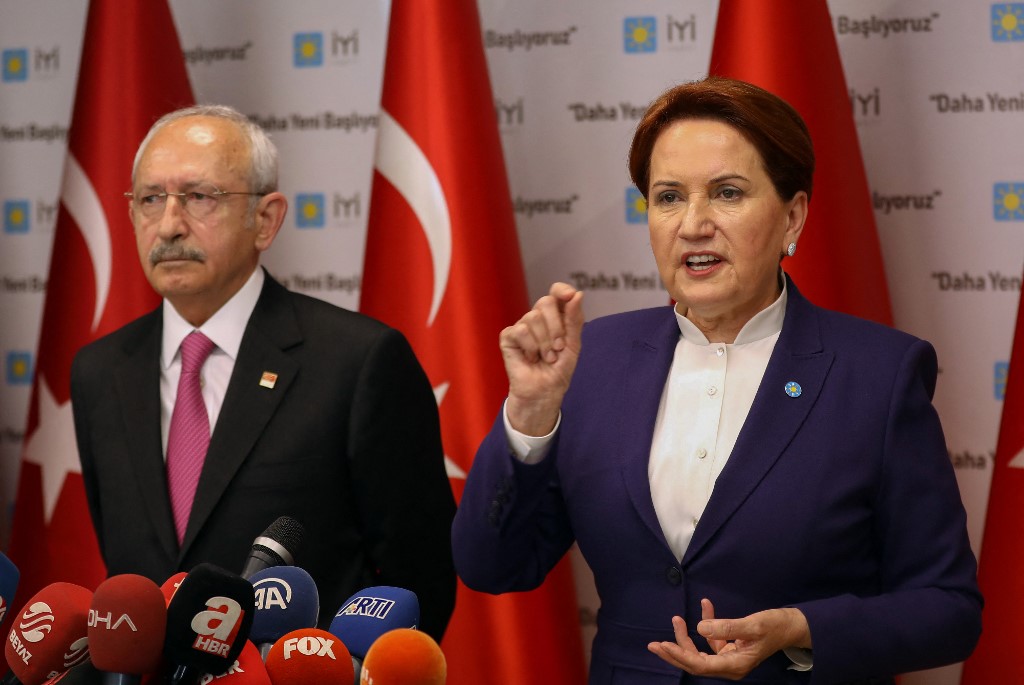Turkey’s currency crisis has cut into the popularity of President Recep Tayyip Erdoğan, handing the opposition a golden opportunity to finally challenge the long-time leader — if rival factions can unite, analysts say.
The next elections are scheduled for June 2023, but the emboldened opposition is pressing for snap elections as soon as next year.
In office for 18 years, Erdoğan survived a coup attempt in 2016, but he now faces an enormous economic challenge as people’s living standards are diminished by soaring inflation and the lira’s collapse.
The Turkish currency has lost more than 40 percent in value against the dollar since the start of the year, exceeding 13 to the greenback at one point last week after Erdoğan defended his unorthodox belief that low interest rates are the antidote to high inflation.
“Rising prices and a weak Turkish lira, alongside public dissatisfaction with widespread corruption, are damaging the government,” Adeline Van Houtte, European analyst at Economist Intelligence Unit, told AFP.
“Critically, several parties are now competing against Mr Erdoğan for conservative and right-of-center votes.”
The sharp fall in the value of lira sparked protests last week in İstanbul and the capital Ankara, with crowds complaining about soaring prices.
“Every day, we ask ourselves these questions: how am I going to pay my rent, how am I going to make it to the end of the month, what are the new prices going to be tomorrow in the supermarkets,” teacher Ayşe Demirel said in Ankara.
Kemal Kılıçdaroğlu, leader of the main opposition CHP party, said he would start public rallies to push for early elections.
“The more value the Turkish lira loses, the more pleased Erdoğan is because this situation is serving dollar lords,” Kılıçdaroğlu said last week.
“We have an obligation to snatch our citizens out of the fire… I am calling on Erdoğan’s government: You’ve lost your ability to rule. Don’t be scared and bring the ballot box.”
But Erdoğan was unmoved.
“Are you strong enough to call early elections in this country? No, you’re not!” he said in comments published on Monday.
‘Gaining trust’
Despite the chest-thumping, Erdoğan’s approval rating has fallen.
A Metropoll survey showed 41 percent of Turks approved of his performance in September, down from almost 48 percent in the November 1 general elections and nearly 59 percent in 2015.
Another poll in October showed that 64 percent of respondents do not think Erdoğan’s government can solve the country’s economic problems.
But the same survey showed 55 percent do not think the opposition could do better if it were in power.
“There’s still mistrust in the opposition’s ability to govern, particularly in their ability to handle the economic crisis,” said Seda Demiralp, associate professor of political science at the private Işık University.
While disappointed by their party’s recent performance, she said, AKP voters “remain hesitant or choose not to vote for any party” because of their dislike of the opposition — particularly the CHP’s secular agenda.
“The economic crisis made it harder than ever for the AKP to win again, but the opposition still needs to work on gaining the trust of disillusioned AKP voters,” she told AFP.
The opposition lacks another key element: a clear favourite candidate to run against Erdoğan.
‘Economy: game-changer’
The opposition parties hold more than one-third of the 600-seat parliament, while the ruling AKP and its nationalist partner MHP are in the majority.
Signs of consolidation within opposition — which has so far failed to seriously challenge Erdoğan — could give them an upper hand in the next election, analysts say.
The right-wing Good Party has allied itself with the CHP.
Two other groups that came out of the ranks of Erdoğan’s AKP, Future Party and the Democracy and Progress Party (DEVA), lashed out at the government’s policies.
Ali Babacan, a former economy minister under AKP who now leads the DEVA, tweeted last week: “Mr Erdoğan, stop it. Enough is enough… We are sinking.”
Seren Selvin Korkmaz, executive director of Istanbul-based think tank IstanPol Institute, said the economy is always a “game-changer” in Turkish political history.
“The opposition has more advantages in the next elections if they succeed in staying united and propose a convincing economic and democratic agenda,” she said.
But Houtte said crackdowns on protests and a likely change of the electoral law to bolster the AKP alliance’s prospects “also mean that if a snap election were to be held in 2022, the opposition’s chances of winning these elections remain less than certain.”
AFP

